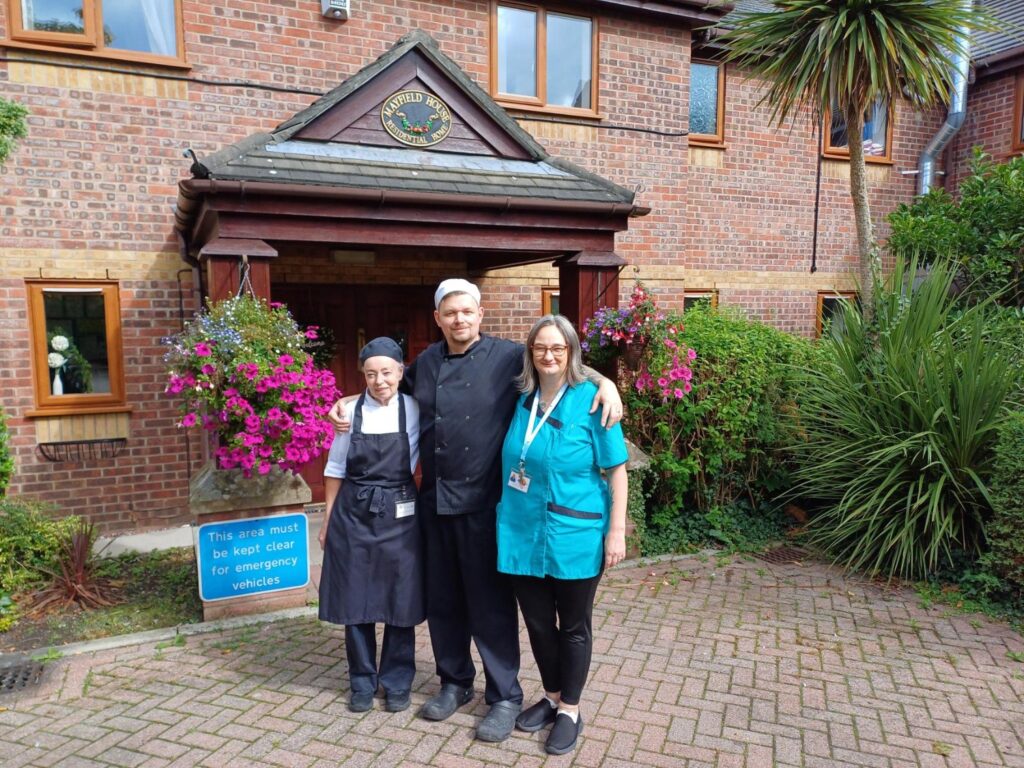A care home in Crewe has significantly reduced its environmental impact by recycling food waste into clean energy.
Mayfield House Care Home, which provides residential and dementia care, has partnered with Keenan Recycling to overhaul its waste management practices. The initiative has cut disposal costs, improved sustainability, and even powered local homes with energy generated from food waste.
Previously, the care home disposed of food waste in general waste bins, increasing landfill use and contributing to higher collection costs. However, a growing commitment to sustainability led staff to seek an alternative approach.
Kitchen Manager Rod described how the change has transformed daily operations: “Keenan Recycling collects our food waste once a week, and it’s made such a difference. Knowing that our waste is turned into compost or energy is really motivating. We’re not just throwing things into the bin anymore.”
From waste to energy
Under the new system, Mayfield’s food waste is collected weekly and processed through anaerobic digestion, a method that converts organic waste into biogas and fertiliser. This shift has reduced the care home’s carbon footprint, with the energy produced from its recycled waste now enough to power two British homes for an entire year or run 11 televisions for three hours a day over the same period.
Beyond the environmental benefits, the initiative has sparked a cultural shift at Mayfield. Staff and residents have become more aware of food waste, leading to better portion control and purchasing habits in the kitchen.
Rod added: “We’ve started to see changes in how we manage food. We’ve cut back on over-ordering, which means less waste and fresher food overall. It’s been a win-win.”
Care home manager Kara Hume echoed this sentiment, explaining how the initiative has influenced staff beyond the workplace. “Recycling food waste was always something we wanted to do. Now, I separate waste at home too, and I’ve noticed the same awareness growing among staff and residents.”
Sustainability in the care sector
The impact of food waste recycling has been recognised externally. Mayfield recently achieved a 5-star Environmental Health rating, in part due to improved waste segregation and hygiene standards.
The care home now plans to expand its recycling efforts to include vegetable oil and cardboard, further reducing its environmental footprint.
Mayfield’s approach aligns with wider changes in the care sector, with upcoming government regulations set to require separate food waste collection across businesses.
Grant Keenan, Managing Director at Keenan Recycling, said: “Short-term investment in food waste management can yield significant financial and environmental benefits. By adopting these processes early, care homes like Mayfield can prepare for the incoming Simpler Recycling regulations while reaping immediate rewards.”
Encouraging others to act
As more care homes look to improve their sustainability practices, Rod has a clear message for those considering food waste recycling. “If you’re thinking about it, just do it. It’s professional, it saves money, and it’s good for the planet.”
Mayfield’s journey highlights how simple changes in waste management can have lasting benefits, setting an example for others in the care sector to follow.




